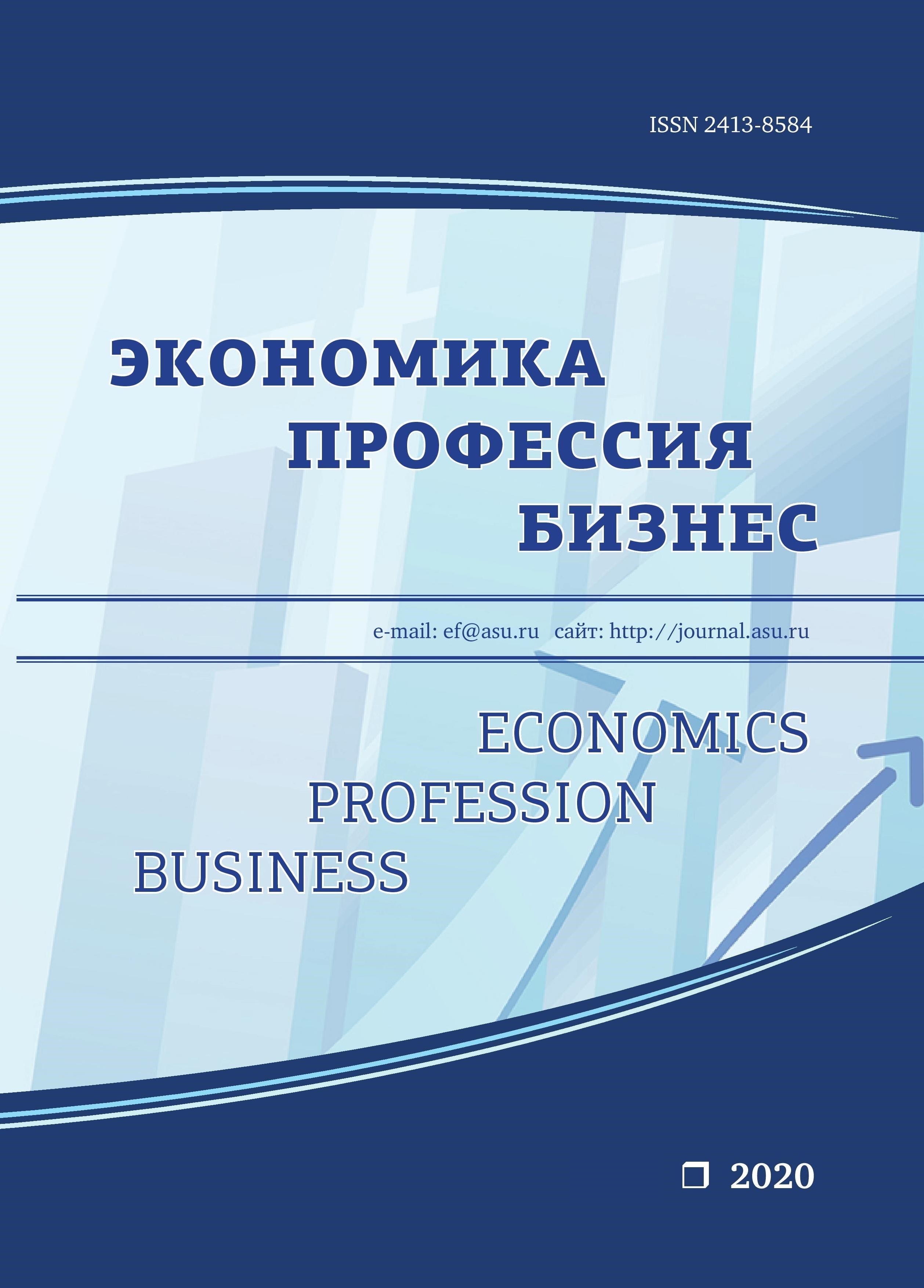THE INFLUENCE OF THE FACTOR OF INDUSTRY AFFILIATION ON THE FINANCIAL STABILITY OF RESOURCE-SUPPLYING ORGANIZATIONS
Abstract
In determining the essence of the concept of financial stability of a company, the key point is to present the allowable amount of receivables and the maximum period of cash turnover in settlements with customers. The emerging tendency to reduce the turnover period contributes to an increase in the liquidity of the organization’s assets and, as a result, to an increase in its financial stability. The article discusses the features of the influence of the factor of industry affiliation on the level of receivables and financial stability of resource-supplying organizations; a number of recommendations for managing the factor in order to increase their financial stability is proposed.
Downloads
Metrics
References
Ильиных Ю. М., Селиванова М. А. Проблемы закредитованности населения России и Алтайского края // Уровень жизни населения регионов России. 2018. № 4 (210). С. 54-60.
Постановление РФ от 06.05.2011 г. № 354 «О предоставлении коммунальных услуг собственникам и пользователям помещений в многоквартирных домах и жилых домов». [Электронный ресурс]. URL: https://www.consultant.ru/ (дата обращения: 01.11.2019).
Рябов Е. Ю. Отраслевые особенности теплоснабжения и их влияние на финансовую устойчивость предприятий // Вестник Омского университета. Серия «Экономика». 2013. № 2. С. 163-167.
Управление Федеральной службы государственной статистики по Алтайскому краю и Республике Алтай. Индекс потребительских цен в Алтайском крае. [Электронный ресурс]. URL: https://akstat.gks.ru/ (дата обращения: 29.09.2019).
Федеральный закон от 03.04.2018 № 59-ФЗ «О внесении изменений в Жилищный кодекс Российской Федерации». [Электронный ресурс]. URL: https://www.consultant.ru/ (дата обращения: 01.11.2019).
REFERENCES
Ivanova L. Yu., Bobyleva A. S. Analysis of financial statements: a training manual. M.: KNORUS, 2018. 332 p.
Ilyinykh Yu. M., Selivanova M. A. Problems of the debt burden of the population of Russia and the Altai Territory // Living standards of the population of Russian regions. 2018. № 4 (210). S. 54-60.
Decree of the Russian Federation of 05.06.2011, No. 354 “On the provision of utilities to owners and users of premises in apartment buildings and residential buildings” [Electronic resource]. URL: https://www.consultant. ru/ (accessed date 11/01/2019).
Ryabov E. Yu. Industry specifics of heat supply and their impact on the financial stability of enterprises // Bulletin of the Omsk University. Series “Economics”. 2013. №. 2. S. 163-167.
Office of the Federal State Statistics Service for the Altai Territory and the Altai Republic. Consumer price index in the Altai Territory. [Electronic resource]. URL: https://akstat.gks.ru/ (accessed September 29, 2019).
Federal Law of 03.04.2018 No. 59-ФЗ “On Amending the Housing Code of the Russian Federation”. [Electronic resource]. URL: https://www.consultant.ru/
Economics Profession Business is a golden publisher, as we allow self-archiving, but most importantly we are fully transparent about your rights.
Authors may present and discuss their findings ahead of publication: at biological or scientific conferences, on preprint servers, in public databases, and in blogs, wikis, tweets, and other informal communication channels.
Economics Profession Business (EPB) allows authors to deposit manuscripts (currently under review or those for intended submission to EPB) in non-commercial, pre-print servers such as ArXiv.
Authors who publish with this journal agree to the following terms:
- Authors retain copyright and grant the journal right of first publication with the work simultaneously licensed under a Creative Commons Attribution License that allows others to share the work with an acknowledgement of the work's authorship and initial publication in this journal.
- Authors are able to enter into separate, additional contractual arrangements for the non-exclusive distribution of the journal's published version of the work (e.g., post it to an institutional repository or publish it in a book), with an acknowledgement of its initial publication in this journal.
- Authors are permitted and encouraged to post their work online (e.g., in institutional repositories or on their website) prior to and during the submission process, as it can lead to productive exchanges, as well as earlier and greater citation of published work (See The Effect of Open Access).









